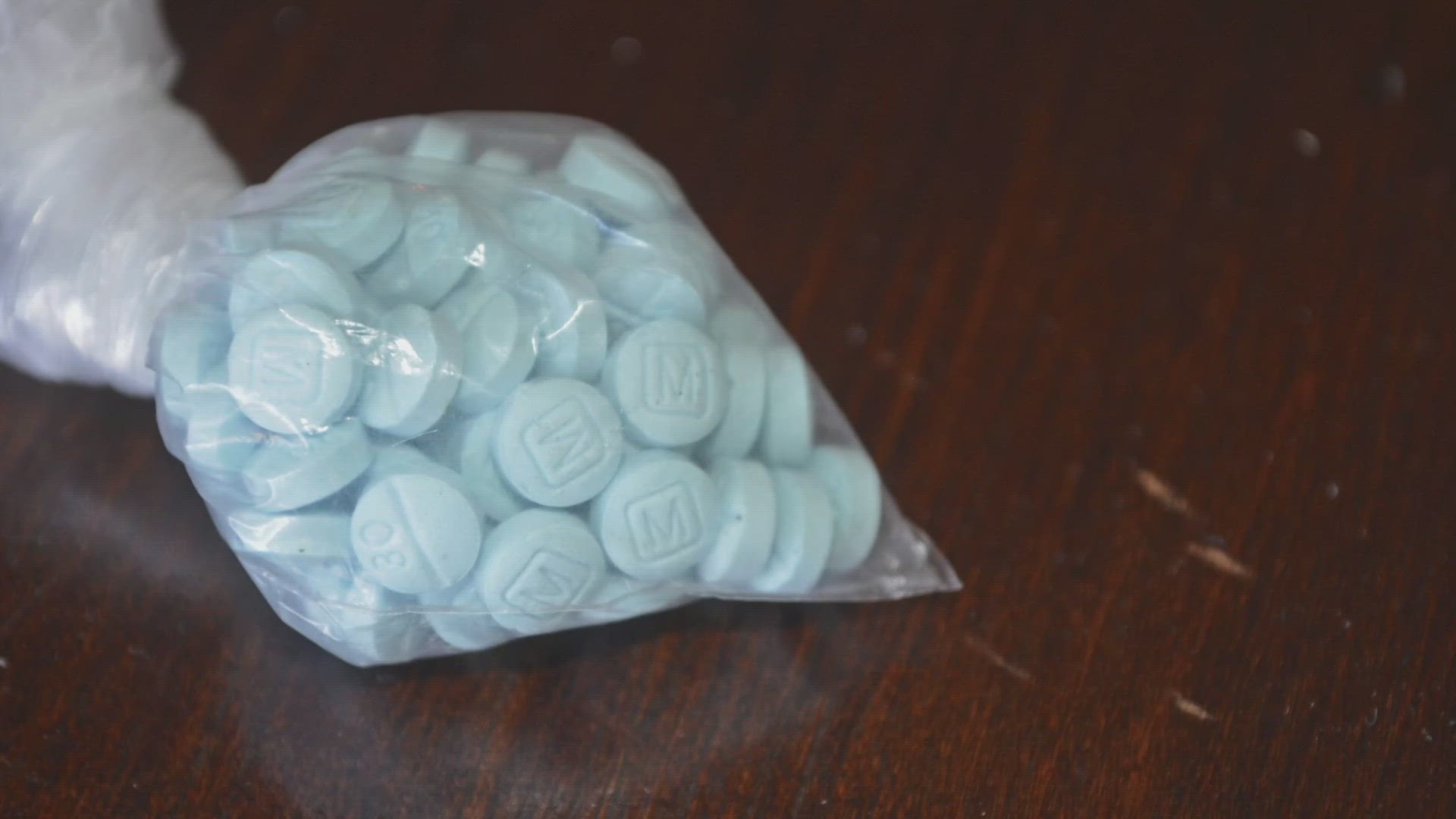PHOENIX — Every day an average of five Arizonans die from an opioid-related overdose.
Most of those incidents involve fentanyl.
“Every decade seems to bring a new drug, and every decade it seems like the drugs are getting cheaper and more addictive,” said Maricopa County Supervisor Clint Hickman.
Hickman and Maricopa County Attorney Rachel Mitchell sat down with 12News as part of the second Fentanyl Awareness Day.
“Maricopa County really is ground zero for fentanyl smuggling,” Mitchell said.
According to the Drug Enforcement Agency, around 28 million fentanyl pills were seized in Arizona last year, accounting for nearly half of all pills seized nationwide.
The DEA told 12News last year that cartels often ship their drugs into Arizona before shipping them nationwide.
The Maricopa County Attorney's Office has also seen a steady rise in the number of fentanyl-related charges, going from 923 in the second half of 2019 to more than 6600 cases last year.
“We will prosecute people who sell it, who transport it, we will hold them accountable. And they are looking at prison time in the future,“ Mitchell said.
The numbers are on pace to be even worse in 2023. Already the DEA seized 25 million pills and had nearly 2500 cases submitted for charges.
"We are going to have another record-setting year, so it’s getting worse," Mitchell said.
Mitchell also worries that the expiration of Title 42 immigration policy could exacerbate issues. The pandemic-related rule allowed federal officials to quickly expel migrants trying to gain entry into the country.
Officials fear cartels could use the humanitarian crisis on the border to sneak more drugs into the U.S.
“They are going to try and screen that many people, that’s not going to be possible," Mitchell said, "I can't see how it would not get worse.”
Mitchell and Hickman want a comprehensive approach to fight the drug problem. That includes targeted border policy, rehabilitation, and education to not do drugs.
“It might sound naive that back in the 80s, Nancy Reagan said 'Just say no.' I'm begging kids to say no." Hickman said.
While the policies are similar to efforts that have been used in the past, Hickman and Mitchell believe doing nothing is not an option.
“It is an overwhelming problem that we are continuing to fight because not fighting means more people die," Mitchell said.
'Maricopa County really is ground zero for fentanyl smuggling': Officials worry about rising prevalence of fentanyl
Tuesday marks the second Fentanyl Awareness Day, and local officials hope policy and education will help fight back.

